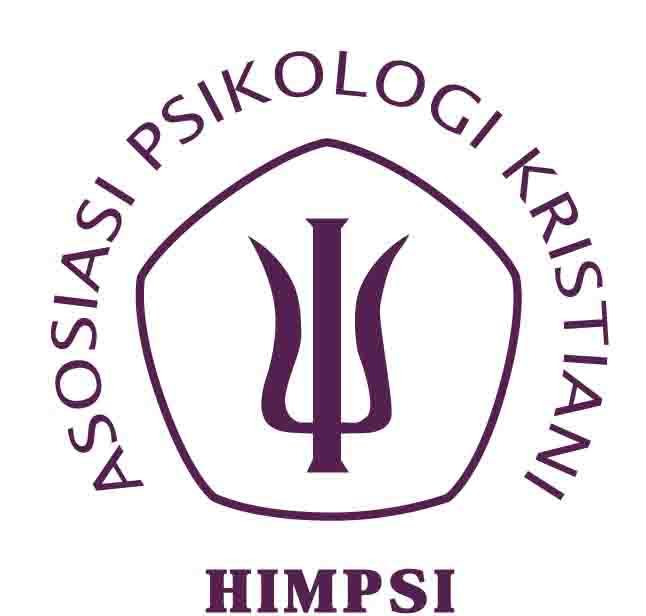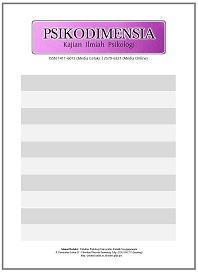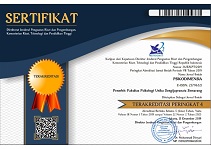Hubungan Antara Dukungan Sosial dan Kualitas Hidup pada Remaja Berkebutuhan Khusus
Abstract
Keywords
Full Text:
download PDFReferences
Amendola, F., Oliveira, M. A. D. C., & Alvarenga, M. R. M. (2011). Influence Of Social Support On The Quality Of Life Family Caregivers While Caring For People With Dependence. 45(4), 880-885.
Borujeni, S. S., Hatamizadeh, N., & Vameghi, R. (2015). Hearing loss related quality of life adolescents with hearing loss. Iranian Rehabilitaion Journal. 13(1), 38-43.
Diatmi, K., & Fridari , I. D. (2014). Hubungan Antara Dukungan Sosial dengan Kualitas Hidup pada Orang Dengan HIV dan AIDS (ODHA) Di Yayasan Spirit Paramacitta. Jurnal Psikologi Udayana, 1(2), 353-362.
Edwards, T., Huebner, C., Connell, F., & Patrick, D. (2002). Adolescent Quality Of Life, Part I: Conceptual And Measurement Model. Journal Of Adolescence, 25, 275-286.
Edwards, T. C., Patrick, D. L., & Topolski, T. D. (2003). Quality Of Life Of Adolescents With Perceived Disabilities. Journal of Pediatric Psychology, 28 (4), 233-241.
Galloway, S., Bell, D., Hamilton, C., & Scullion, A. (2005). Well-Being and Quality Of Life: Measuring the Benefit Of Culture and Sport: A literature Review and Thinkpiece. In Scottish Sosial Research.
Kumalasari, F., & Ahyani, L. N. (2012). Hubungan Antara Dukungan Sosial dengan Penyesuaian Diri Remaja di Panti Asuhan. Jurnal Psikologi Pitutur, 1(1), 21-31.
Kef, S.,& Dekovic, M.(2004). The role of parental and peer support in adolescents well-being: a comparison of adolescents with and without a visual impairment. Journal of Adolescence. 27, 453–466.
Kementrian Kesehatan RI. (2014). Situasi Penyandang Disabilitas. Jakarta: Departemen Kesehatan.
Law, M., Hanna, S., Anaby, D., Kertoy, M., King, G., dan Xu, L. (2014). Healthrelated quality of life of children with physical disabilities: a longitudinal study. BMC Pediatrics.
Nida, F. L. K (2014). Membangun Konsep Diri Bagi Anak Berkebutuhan Khusus. 1(2), 45-64.
Noviarini, N. A., Dewi, M. P., & Prabowo, H. (2013). Hubungan Antara Dukungan Sosial dengan Kualitas Hidup pada Pecandu Narkoba yang sedang Menjalani Rehabilitasi. Proceeding PESAT (Psikologi, Ekonomi, Sastra, Arsitektur & Teknik Sipil), 5, 116-122.
Sun, W., Wu, M., Qu, P., Lu, C., & Wang, L. (2013). Quality of Life of People Living with HIV/AIDS under the New Epidemic Characteristics in China and the Associated Factors. PLOS ONE, 8(5).
Tarmidi, & Rambe, A. R. R. (2010). Korelasi Antara Dukungan Sosial Orang Tua dan Self-Directed learning pada Siswa SMA. Jurnal Psikolgi, 37(2), 216-223.
Thurston, S., Paul, L., Loney, P., Wong, M., & Browne, G. (2010). the quality of life of a multidiagnosis group of special needs children: association and cost. International Journal of Pediatrics. 1-13
Unicef. (2013). Children and Young People with Disabilities Fact Sheet. New York. United Nations Children’s Fund.
Unsar, S., Erol, O., & Sut, Necdet. (2016). Social Support and of Life Among Older Adults. International Journal of Caring Sciences, 9(1), 249-257.
Utami, N. S. (2013). Hubungan antara dukungan sosial keluarga dengan penerimaan diri individu yang mengalami asma. Jurnal Psikologi Udayana, 1(1), 12-21.
Virlia, S., & Wijaya, A. (2015). Penerimaan Diri pada Penyandang Tunadaksa. Seminar Psikologi & Kemanusiaan, (pp. 372-377). Jakarta.
Yasin, M. S., & Zulkifli, M. A. (2010). The Relationship between Social Support and Psychological Problems among Students. International Journal of Business and Social Science, 1(3), 110-116.
Waqiati, H. A., Hardjajani, T., Nugroho, A. A. (2013). Hubungan antara dukungan sosial dan efikasi diri dengan kecemasan menghadapi dunia kerja pada penyandang tunadaksa. Jurnal Ilmiah Psikologi Candrawijaya. 2(1). 1-12.
Zimet, G.D., Dahlem, N.W., Zimet, S.G. & Farley, G.K. (1988). The Multidimensional Scale of Perceived Social Support. Journal of Personality Assesment, 52 (1), 30-41
DOI: https://doi.org/10.24167/psiko.v16i1.937
Print ISSN : 1411-6073 | online ISSN : 2579-6321 View My Stats

This work is licensed under a Creative Commons Attribution 4.0 International License.




















